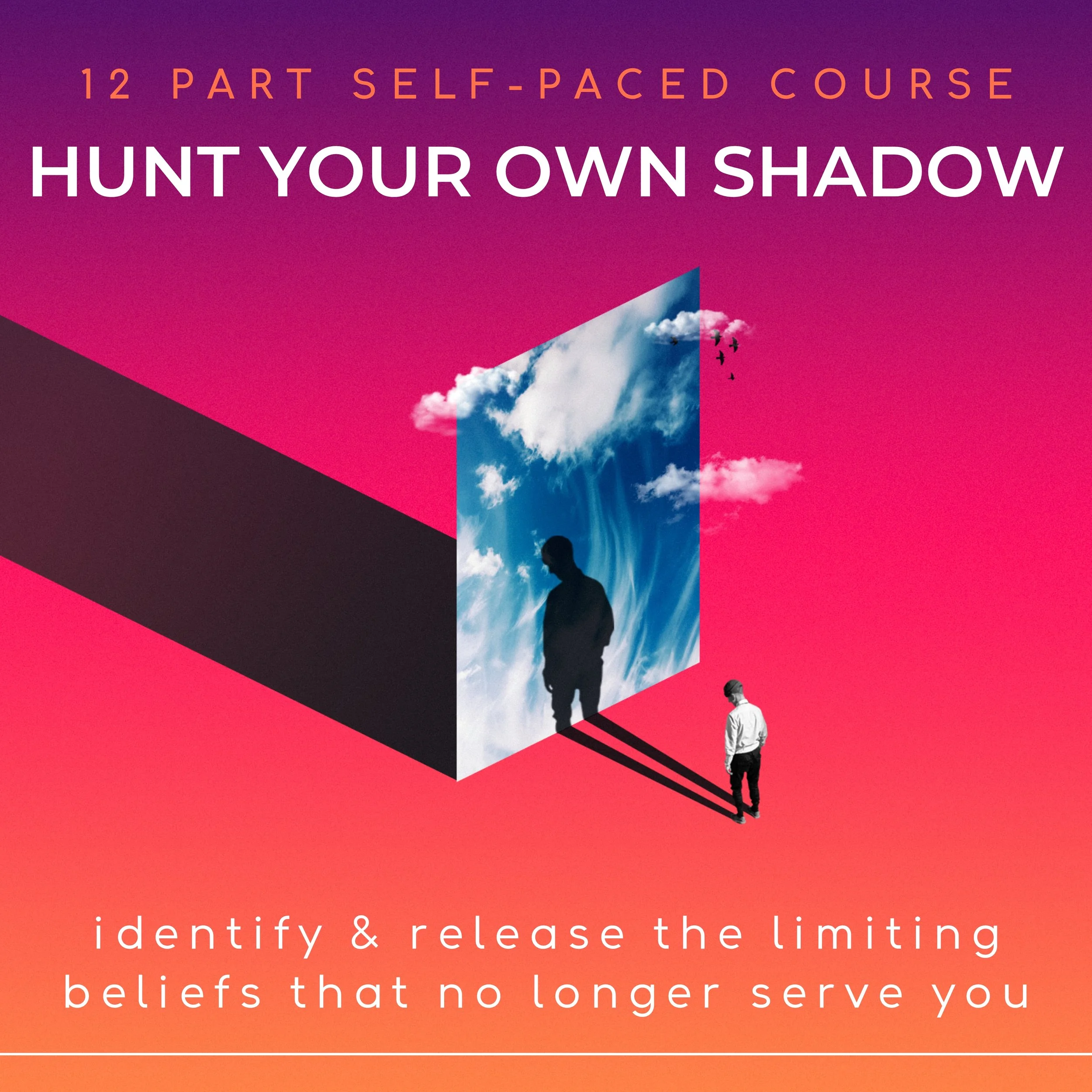Putting Yourself First is Not Selfish
In a world that often glorifies selflessness and sacrifice, the idea of putting yourself first can feel uncomfortable, maybe even selfish. But the truth is, prioritizing your own wellbeing isn’t just essential for your personal growth and happiness; it’s also crucial for the health of your relationships and the impact you have on others. Putting yourself first is not selfish, it’s a non negotiable.
As someone who has navigated my own mental health challenges, I understand the importance of putting myself first. This is something that can often feel counterintuitive in a world that encourages self-sacrifice. Through my experiences and the work I’ve done in mental health advocacy, I've learned that prioritizing my wellbeing is not only essential for my own growth but also benefits those around me. In this post, I want to share why putting yourself first isn’t selfish, but rather a vital step toward creating a healthier, more fulfilling life. Below we will go over why putting yourself first, and taking the time to care for yourself, helps you to empower yourself to better support others and contribute positively to our communities. We will also talk about how you can’t pour from an empty cup.
Putting Yourself First Is Not Selfish, It Is Necessary
When you take care of yourself, your needs, your boundaries, and your dreams, you create a strong foundation from which you can truly give to the world. Putting yourself first is not selfish; is not only beneficial but necessary, and shifting your mindset around it can lead to a more balanced and fulfilling life.
Let’s explore this concept with a visualisation:
Imagine that you are walking along the beach and hear a scream for help. Looking out to the ocean you manage to spot a small hand reaching up from the water about fifty meters out. It’s a small child. She is struggling against the current and fighting to stay afloat, but she is slowly losing the battle. Soon she will disappear under the waves for the last time. It’s clear that without your help, she will drown.
So what would you do?
Would you bravely swim out and attempt to save her? Or just watch from the beach, too much of a coward to act?
Before you answer, realise that I have set you up. In framing the question with such diametric options of ‘bravery’ or ‘cowardice’ I have forced your hand. There must be another way.
In reality there are an unknown number of variables that should impact your decision-making in this regard.
How competent a swimmer are you? What is your current mental and physical state? Do you know the young girl? How many family members do you have that are directly reliant upon you for survival? Do you think that you could realistically save her? Even if you could, is it your moral duty to risk yourself for her sake? Whose life is worth more, and is it possible to even work that out?
There is no right answer here, you could argue for either course of action with equal vigour.
The problem is that society expects self-sacrifice in the service of others, particularly for close friends and especially for family. When it comes to friends or family members who are sick (physically or mentally), it is automatically presumed that we ‘should’ and ‘must’ help them as much as possible. It seems noble and heroic to sacrifice one’s self in the service of others. Society seems to value and idolise those of us who give everything in the support of others.
“You are doing God’s work”, ‘You are a Saint’, ‘If more people were like you…’
I don’t agree with this line of reasoning. I don’t think that anybody (unless it is a requirement of the line of work that they have freely chosen to perform) should completely sacrifice themselves when helping others. Putting yourself first is not selfish.
You Can’t Pour From An Empty Cup
People should look after themselves first - you can’t pour from an empty cup. Now this is not a selfish idea either mind you, I believe that it is to the benefit of society as a whole, as well as in the best interests of the individual that would be the recipient of the sacrifice. Because if you don’t look after yourself, and you fall, how will that person get the help they need?
People that are unwell often complain that nobody understands their plight, and that people can’t empathise with them. They draw an analogy to being stuck at the bottom of a well, and want you to help them by ‘getting into the hole with them’, because by getting down to their level you will understand.
Now please don’t get me wrong, if you are able to safely put yourself into that place mentally, then perhaps this kind of support is suited to you. Psychologists, councilors and other expert’s primary role is just this, to empathise with their patients by seeing the world through their eyes, and offering strategies and advice.
But unfortunately a lot of us don’t have that ability, we can’t just switch those thoughts on or off with ease. Most people are like sponges, absorbing the moods of those around them, so if you purposefully attempt to empathise, you are now inviting those same moods onto you. Putting yourself first is not selfish because you can’t pour from an empty cup.
This is the dangerous part, now you are both stuck in the hole. Yes, you are together, but now you are both suffering. If you are both down the hole, who can help you out? Perhaps you could climb out together, but if it were that simple, the person would have done so already.
So what can you do? We all want to help people, without burning ourselves out. You can’t pour from an empty cup - instead, you need your cup to be overflowing, so you can give to others from a place of abundance rather than depletion. Putting yourself first is not selfish, it is an act of care for both yourself and others.
Putting Yourself First
So we have established that putting yourself first is essential for the your own health and your ability to help others. But it is easier said than done, isn’t it?
Not everyone is capable of providing every type of support. We do what we can, with what we have. You need to know yourself, your abilities and your limits. How you can best help will be dependent on you as a person as well as the resources you have available.
Consider your own boundaries, what you can do to help without hurting yourself, and what the other person would benefit from, and find the intersection there. Putting yourself first comes first - then give from that place. You may be surprised, sometimes the most helpful moments are small gestures that you can give quite easily.
You could try any number of the following types of support, or none of them. It is entirely dependent on what you can safely provide on an ongoing basis. Because please be aware, help is rarely a once off event, people will keep needing it. Which is fine, provided that you are prepared to keep giving it.
- Invite them to a social gathering
- Lend them a book
- Give them a hug
- Refer them to an expert in the field
- Listen to their problems
- Cook, clean or do house chores for them
- Offer to pay for an expert assessment
- Talk with them
- Liaise with support agencies on their behalf
Returning to the analogy, perhaps a better option would be to offer a hand out of the well. Send the rope of friendship down or a ladder of advice. Just don’t go down yourself. Let the person know that you are there for them, but that you have a limit. You must look after yourself in order to be able to help them. Because if you fall, you can no longer carry them.
Only you know your limits and how far you are willing to go in helping somebody. Obviously the extent of yourself that you sacrifice will be dependent on a number of factors, and I can’t help you determine those. Putting yourself first is your responsibility. Only you can tell what your line is, and if it is being crossed.
The key point is this, if you don’t look after yourself first you may end up drowning along with the person you were trying to save. Putting yourself first is not selfish, it is an act of planning for the both of you to succeed.
Seek the advice and help of experts, charities and government run organisations that could help point you to the information and services that are best suited for you. Reach out to other people for support, there are communities of people in a similar situation, who, like you, are in the process of working it out.
If this post has resonated with you, I would love your support.
Your shadow is the gateway to a more authentic you.
This course is your guide to profound inner work. Through powerful insights, guided prompts, and proven techniques, you'll navigate your shadow, heal unresolved wounds, and reintegrate the parts of yourself you’ve long ignored.
What’s Inside:
12 x Guided Meditation & Contemplations
12 x Introspective Prompts
12 x Expansion Challenges
A comprehensive instructional PDF guidebook
Unlimited email coaching for ongoing support and personalized guidance
Explore full course details and watch intro video here!
This isn’t just about healing, it’s about meeting your shadow head-on, embracing every part of yourself, and reclaiming your full power.
Are you ready to face what’s been hidden and step into your truth?


